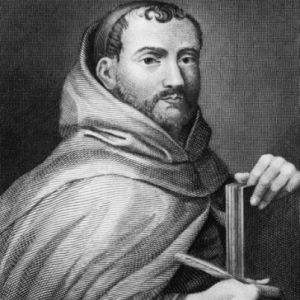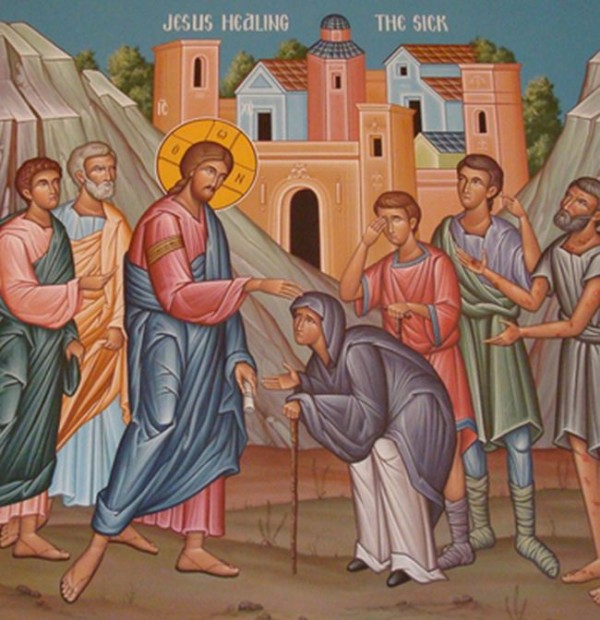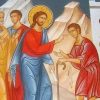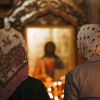God reaches out to everyone personally. He knows what we need and how to meet our needs. We have no need to be afraid. God is always near. All He had to do was speak a few words in today’s Gospel and the woman was healed. God loves each of us. He knows us better than we know ourselves. Every wound, manifest and secret, is known to Him.
It is hard for us to understand sometimes why tragedies occur, diseases and the like, but we believe, because God is love, that nothing can touch us that does not contribute to our good.
 St. John of the Cross was a Spanish saint who experienced much personal tragedy as nearly all mystics do. Once he was imprisoned and beaten nearly to death with his guard’s shoes. He suffered a great deal, but in all of it he found God. He wrote a beautiful poem in which he imagined a dialogue with God. St. John asks God, “What is grace?’ And God replies, “Everything that happens.”
St. John of the Cross was a Spanish saint who experienced much personal tragedy as nearly all mystics do. Once he was imprisoned and beaten nearly to death with his guard’s shoes. He suffered a great deal, but in all of it he found God. He wrote a beautiful poem in which he imagined a dialogue with God. St. John asks God, “What is grace?’ And God replies, “Everything that happens.”
Our lives are filled with suffering and since that is so our loving Lord turns the suffering into good. God is not the author of suffering, but He is its Master. When it comes He uses it to wake us up, or as a call to prayer, or as fertilizer for the spiritual life.
When suffering comes we must remember that it almost always reveals that there is important work to be done. Perhaps the message is that we must take better care of ourselves or, perhaps, practice more compassion for our neighbor. Maybe the message is that there is still something deep us within subverting our joy and we need to wake up and do something about it. Whatever the case, suffering calls us to open our eyes to its cause and to whatever good the suffering calls us to do and usually that is to open up, let go, and trust in the Goodness of the Lord.
The spirit of infirmity that caused the woman’s distress brought her mysteriously into the presence of Jesus. If we open our hearts to God, then we will also find ourselves led as she was to a healing that surpasses the limitations of our minds and imaginations. We will discover the meaning behind it all and find rest in the midst of the storm. “Everything that happens is grace.”
“He laid His hands on her.” What a beautiful image! God touched her, graciously. Lovingly He embraced her. The Lord proclaimed her to be greater than the Sabbath! How could He who crafted the Law be bound by it? He who gave the Law broke the law for the sake of one diseased woman. Since God is love and the distillation of the entire Law is love, then there is nothing that can supersede it. Laws, Sabbaths, rites are all intermediary things, all fingers pointing at the moon. When the Moon comes near and touches the earth finger pointing is no longer necessary.

















